
What if we told you that there could be a centralized office which connects nearly all of the activist efforts in the cultural sector in Austria, providing general and targeted support, resources, services, workshops and networking scenarios for members and the community at large? And what if we told you: it’s already here.
D/ARTS – PROJECT OFFICE FOR DIVERSITY AND URBAN DIALOGUE is reaching the end of its first two years and has quite a lot to show for itself already. Emerging from a glaring void in the arts and cultural scene in Austria, D/Arts has arrived – with many hats to wear, shoes to fill, and requests to juggle. As part of the network of alliances they’re building, musician, composer and singer extraordinaire, GOLNAR SHAHYAR has been an integral part of the process, with both her expertise in music, as well as her personal, ongoing fight for anti-discrimination practices and inclusion in the music scene. For these reasons and more, Arianna Fleur Alfreds sat down with one of the founding members of D/Arts, ZUZANA ERNST and GOLNAR SHAHYAR to discuss the major challenges, pitfalls and speed bumps that exist in the Austrian music and cultural scene, as well as the changes and solutions that a better future could entail. [This is PART I of the interview. PART II can be found here.]
Can you tell me about your individual backgrounds?
Zuzana Ernst: I’ve been working at Brunnenpassage since 2015, as associate artistic director, and have been active in the independent scene with the performance collective tangent.COLLABORATIONS. Right now, I’m very much involved in D/Arts – the project office for diversity and urban dialogue – which we started in 2020. I‘m one of the curators and founders, together with Ivana Pilić and Sheri Avraham.
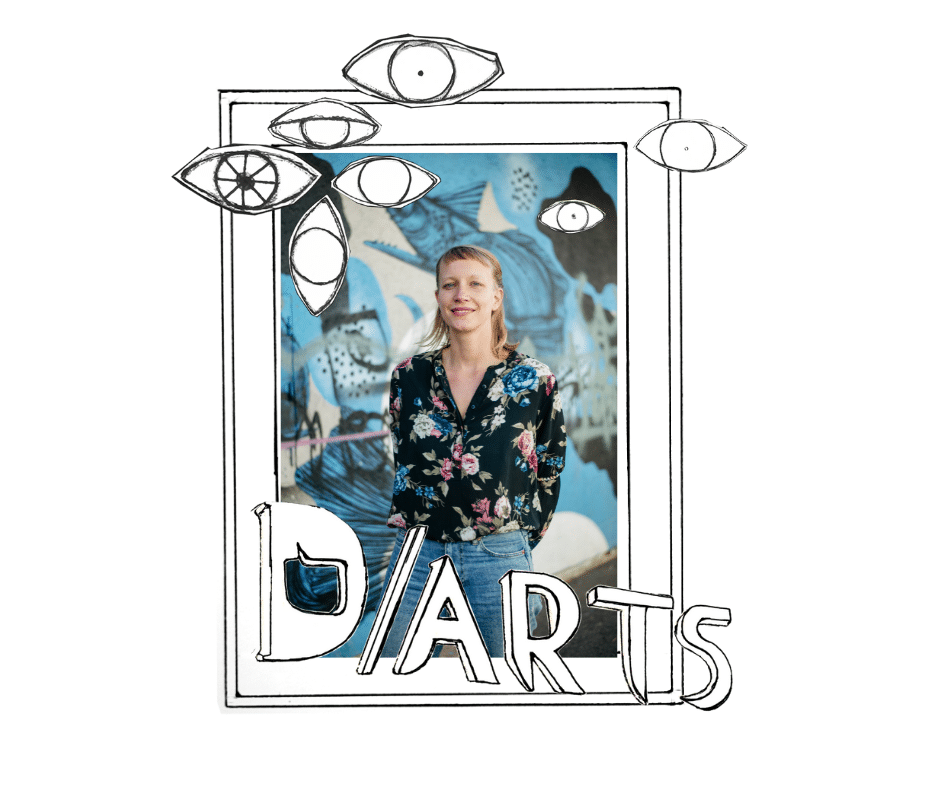
Golnar Shahyar: I’m a freelance musician, performer and composer. I’ve been working in the music scene for more than 10 years now in Austria, and besides my artistic activities, I started to be more verbal about the flaws of the industry – the things that could be better – since around 2020. I started to do a lot in the realm of activism. Because I believe there are not enough narratives represented, publicly, from the perspective of practicing artists who come from different backgrounds in Austria. So I found it necessary – in order to make my own working conditions, along with those of the community, better. It’s much better if everyone is empowered. Then, you’re also automatically empowered.

When did you come into contact with D/Arts?
Golnar Shahyar: We started to come into communication in 2020, as well.
Was it by chance that all this happened in 2020? Or was there a connection to the pandemic?
Golnar Shahyar: For me, there was a connection. Simply because, all of a sudden, I had time. Before that, as a as a freelance artist, you’re always going from point A to point B, running to the next deadline. So there’s no time, even for your private life, let alone, for advocacy. So, I was finally able to sit down and gather my thoughts, and also come into communication with as many people as possible when the pandemic arrived.
“We need […] space for thinking together in order to move beyond criticism to actual systemic change”
When and how did D/Arts begin?
Zuzana Ernst: D/Arts was initiated by Brunnenpassage and came out of a project application with the rough idea to build alliances through discourse – back then with the working title, ‘Voices of Transformation’. We took it from there and, inspired by Diversity Arts Culture Berlin, we came up with the project office as a tool to build a broad network of actors and call attention to the existing discriminatory structures in culture. We need loud, activist voices, but, also a space for thinking together, in order to move beyond criticism to actual systemic change. It’s about finding solutions together with artists and initiatives at the margins, with cultural politics, with the established institutions, and with everyone in between.
When did D/Arts become its own entity then?
Zuzana Ernst: Basically from the beginning, the goal was to build a platform of many initiatives and institutions. Right away, we chose to open the process and involve many different actors, build on all the knowledge and work that is being done, and has been done for so long, already.

So one of the main threads of D/Arts is this discourse series, that already happened in Kulturhaus Brotfabrik, Soho Ottakring, Kunsthalle, Musikverein and Belvedere, and will now conclude with the artist production ‘ze_RO!Ayns’, a public performance at the Donaukanal (Danube Canal) in Vienna end of August/beginning of September. With every event we brought in experts as co-curators and collaborators – like with the Musikverein event. Collaboration is an essential part of the curatorial concept of D/Arts. And also to bring the discourse on critical diversity in the arts onto the established stages, to discuss were transformation is most necessary.
Golnar Shahyar: And I would like to add that, at the same time, Musikverein came into communication with Brunnenpassage and asked them to help them to diversify their program and wanted to utilize their expertise. Then Brunnenpassage asked me to be one of the people to write a concept to be introduced to Musikverein, from which some parts were indeed implemented, and this project – Wiener Stimmen (Viennese Voices) [note: performance takes place on June 4th, ticket link and raffle below] – is one of them. So this was something parallel, but separate.
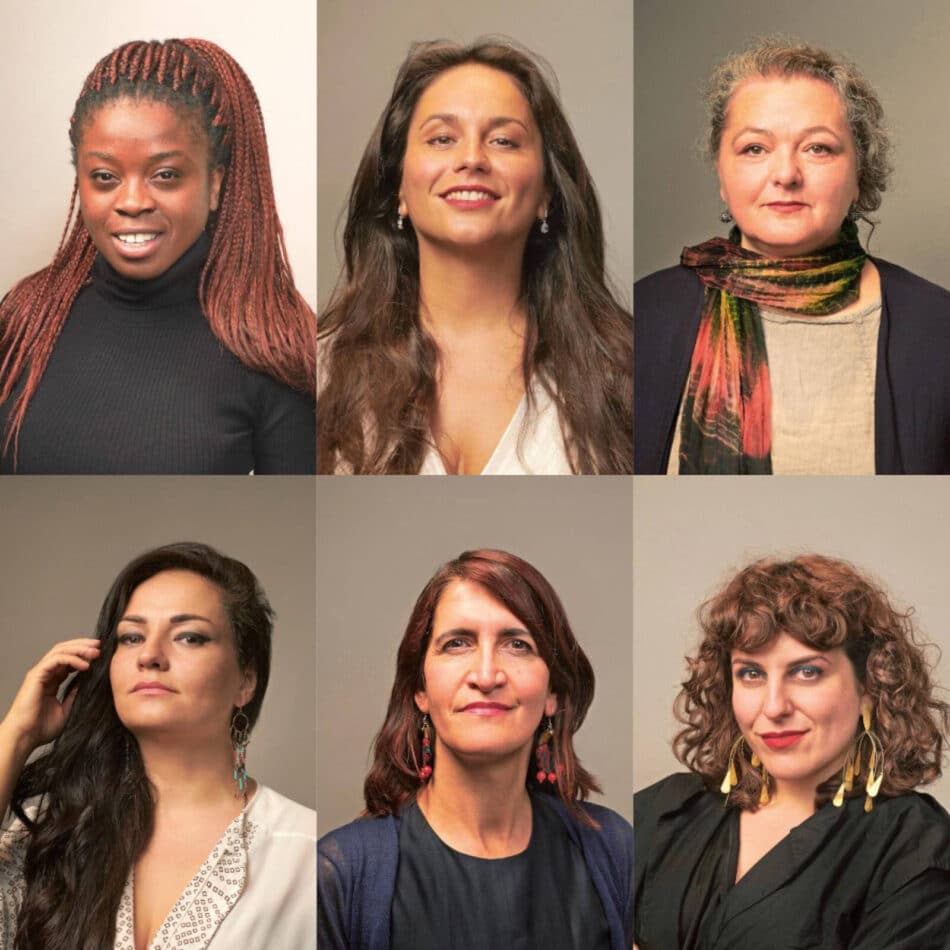
It seems to be another example of how many efforts and initiatives are happening side by side, but sometimes the thread is lost. It feels like D/Arts is filling a real void – connecting things that are already occurring, in parallel and, hopefully, strengthening them in the process.
Golnar Shahyar: Absolutely!
Zuzana Ernst: Yes, there are so many initiatives and so much that is being done. So, on one hand it really was important to bring the discussion into the daylight and to make this discourse broadly heard. And at the same time, to build a network. It was, from the beginning, an invitation for a lot of different actors to start a conversation together. So these are the network meetings that happen regularly to see: okay, what are people actually working on? What are the topics? Where can we come together? And what is a useful structure for the project office on the long run?
It also feels like D/Arts emerged just at the right moment for Austrian culture and arts to jump on the train, so to speak. Better late than never.
Zuzana Ernst: You know, it’s true that “diversity” is this big hype now – for better or worse. A lot of decision makers are waking up and seeing that, okay, we need to change. Society’s changing, and we know we’re far behind. And at the same time, there have been these singular struggles, which are so important, but the feedback that we’ve been getting to this initiative has been, ‘Wow, now we can connect things!’.
“Fake it till you make it”
So what are the conditions and structure of D/Arts? How is it funded?
Zuzana Ernst: We started with funding from a foundation for the two years process until the end of this year, performing as a “project office”, with the motto: ‘fake it till you make it’ – also as a signal or message to the policy makers that we need something like this long-term. This year we received additional funding from the city and federal level, which hopefully is a first step towards structural funding. And the goal is to establish a proper association, with statutes, a board, members, and so on by the start of 2023. To build this network that can continue to function, to continue the conversation. And to also be a support for the activist voices, a bridge for collaborations with institutions and provide anti-discrimination training and consultancy. To see that the systems are slowly starting to transform and to change.
These are big goals. And certainly require time and patience.
Zuzana Ernst: Yes, we know it’s a long process – it’s not gonna be in two years, it’s not gonna be in four years. The goals have to be long-term.
And as Golnar said, with the Musikverein, D/Arts and Brunnenpassage intersection, for example, it was kind of by chance, but maybe also not. Because there was a changeover in the directorship of Musikverein at the time, and there is now quite an openness and understanding that: okay, we are an old established institution stuck in this machinery, and we need to change. And then taking the initiative to come to Brunnenpassage to ask for a cooperation, and to have a partner in this process.
I think it’s really great that there is now somebody who is advising the institution in a two-year diversification process on an institutional level. And with the D/Arts discourse event [note: “D/ISSONANT COUNTERPOINT: On the democratization of music and musical practices”] – it just made sense to have it at Musikverein, and to bring the discourse there.

The word institution has come up a lot already. Is one of the goals of D/Arts to institutionalize it – with all of the pros and cons that go along with that?
Zuzana Ernst: Yeah, very good question. Because, of course, institutional critique is very central to our work, but, at the same time, there needs to be a sustainable infrastructure for the discourse and changes to happen. And, actually, when we started it, the main kind of vision, or the role model for us was Diversity Arts Culture Berlin because they’re doing really amazing work in Germany, where it’s already kind of institutionalized. There, it was started by the Senate, already with sustainable funding from the beginning.
“The goals have to be long-term”
How do Austria and Germany line up, when it comes to progress in work around diversity and fairness?
Zuzana Ernst: Of course Germany is a much bigger country, but, in general, the work in diversity in the arts is farther along there, than in Austria. There are already structures in place like Diversity Arts Culture, working on different levels – from discourse work to sensibilization workshops and consultations services that they offer, to support systems for artists and cultural workers that are marginalized, and there is much more work done on data collection and evaluation.
So these are kinds of visions while, at the same time, being careful with the word ‘institution’, to remain agile and porous. The goal is to get resources and infrastructure to do the work. Because the base of it is activist work – it comes out of an inner motivation. And it’s very common that people burnout in this process, as well.
So trying to take some of the responsibility away from the individuals and smaller, struggling organizations?
Zuzana Ernst: Yes, and to call cultural politics into action and responsibility regarding funding.
Golnar Shahyar: Exactly. Because as long as we don’t involve that side of things, this will just be a side project or will not really integrate into the actual practice of culture. So, for that, we need funding. And we need acknowledgment from the political realm that this is very serious work that has to be done. I really hope that D/Arts gets the funding it needs in the coming years.
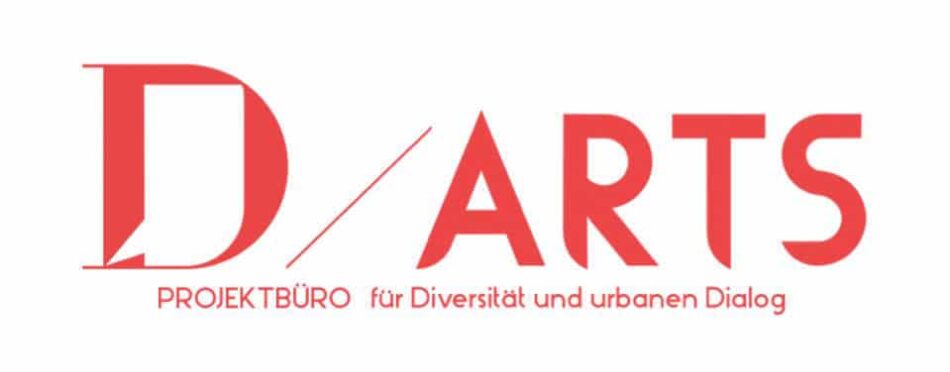
Zuzana Ernst: Luckily, there have been many people involved in the ministries and funding bodies showing a lot of support for us, but now it’s the question of whether it’s more than lip service or not, and if this will translate into funding and concrete support. We are also in the process of thinking about membership – which on one hand, are the small grassroots initiatives, but, on the other, also the institutions with large budgets, and to come up with fair and effective models for that.
“people don’t even know that we have a lack-of-diversity problem in the cultural sphere”
What are some of the special challenges in Austria that you face while fighting your fight? Also, specifically, in the music scene?
Golnar Shahyar: The first challenge that we have here is that many people don’t know that we have a lack-of-diversity problem in the cultural sphere. Also, people who are actually consuming culture and, specifically, subsidized culture – they just don’t know. That’s the first big challenge.
The next are the institutions, where the cultural discourse is being reproduced, are not really doing so in practice. There is discourse in a theoretical sense, let’s say in the music universities – there are ethno-musicologists who write about these things – but the knowledge is lost in translation, when it comes to practice.
“A lot of people don’t ask for fair pay because they’ve become accustomed to something else”
And the next thing which is specific to Austria is that there is a certain level of wealth. People don’t really move out of their comfort zones, so they don’t challenge the system – even though they might be exploited from it, themselves; for example, in the case of payments in Austria, and, specifically, musicians’ payments. A lot of people don’t ask for fair pay because they’ve become accustomed to something else.
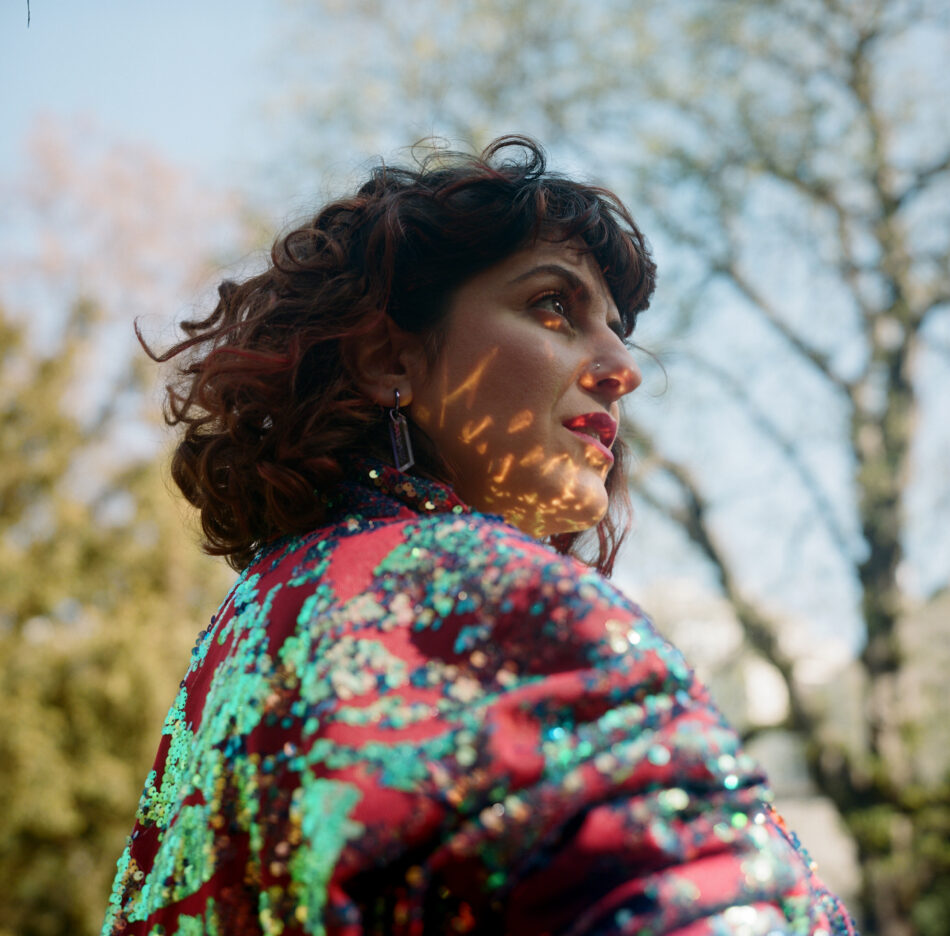
Also in Austria, there are politically, culturally and economically marginalized communities which are very suppressed, so they have internalized the idea that they don’t have the right to claim their space. That’s why we don’t have so many people actually asking for the right to be involved and integrated in public spaces.
“their political voices are lacking […] and that shows itself in culture”
To put it lightly, empowerment is lacking …
Golnar Shahyar: Exactly, so their political voices are lacking and their political involvement is lacking, and that all shows itself in culture.
Finally, another very important thing is the education system in Austria, which is extremely incompetent when it comes to diversity. I mean, I don’t know if it’s currently changing or not, but I am aware that till now, for example, the process of cultural and class separation happens as early as kindergarten in Austria. So people with different mother tongues, different cultures, coming from different classes are, from the absolute very beginning, put in separate spaces, in separate schools. And that’s where the discrepancy starts. So, you end up having a cultural community that mostly the white middle class basically has access to – or believes belongs to them – and the rest, they don’t even think that they could belong to it, or, when they try, there’s not an infrastructure to really integrate them, culturally.
What could D/Arts do for the music scene, and vice versa?
Golnar Shahyar: Well, as Zuzana said, D/Arts managed to bring the activism work – which too few people are doing in general – in connection to an institution, like Musikverein. So without that, without your [note: D/Arts’] presence, that would have never happened, in my opinion. So you’ve accelerated that communication. What I think could be even more helpful would be to give more attention to and concentration on each discipline, for themselves. For example, with the discipline of music, I could imagine mica comes into more communication with D/Arts, because it is already a very good center in Austria. Like, its network is huge and it could really have an impact.
“follow-up work is crucial”
Also, I’d like to add, the follow-up work is crucial, to reflect on and grow from what was discussed. Often, having a follow-up after the discourse is as important as the discourse itself.
Zuzana Ernst: Yeah, totally, we need more people involved. We feel it, and also one big step now would be to start to do “train the trainer” workshops – to learn from each other, because people are experts in different areas and can sensitize one another to these topics; and to increase the body of voices in the discussions as well. And what you said about the disciplines, I can only say: totally. I think this is something that is already starting to happen a little bit, but it’s part of the vision for when there is really a sustainable structure.
And about the follow-up, in that case, it’s actually happening because the conversation continues. And, even more, it’s working very much inside the institution [note: Musikverein] and within the cooperation with Brunnenpassage which will then go beyond Wiener Stimmen, into next year.
“[…] you’re not alone here, someone has your back – namely, a big network that is fighting in parallel across genres”
There is a reflection process happening, which of course also takes time, and is not always easy to facilitate. Like recently with the Belvedere event that happened at the end of March, a lot of things were discussed regarding diversity in decision making positions, and now is the question what will be possible to implement. But, luckily, there, I’m already getting positive feedback. There is a diversity working group within the institution of Belvedere, which has now become strengthened by the D/Arts events, because the topics were brought inside of the, you know, marble hall of this major institution. And now their work is easier from within, because the topic has arrived with much more presence than before.
There is a lot of work to do and people are already voicing their needs, and then there has to be some kind of a push. So, I think D/Arts can act as a kind of support in the conversation – for people and organizations to know: you’re not alone here, someone has your back – namely, a big network that is fighting in parallel, across genres.
Could you enlighten us on the D/Arts discourse event “D/ISSONANT COUNTERPOINT” at Musikverein in February 2022? What was the purpose and what was the result?
Golnar Shahyar: The topic was the democratization of music and musical practice, and the focus was mostly institutions dedicated to European classical music. That’s why, symbolically, Musikverein was, like, the place. So we came together on a panel, plus live music from Mahan Mirarab and Bernhard Schimpelsberger, to examine this. I mean, I wish there had been more attention on it placed by media, political actors, etc. But, nevertheless, what we managed to do was to voice some blind spots that are usually in the discourse of diversity – which is a big topic because, you know, every person has their own definition of diversity.

“diversity is not only about the body […] but also in the language of music, and the involvement and integration of many different music cultures”
And that’s where part of the problem is, because, you know, some people say, ‘okay, in my team, I also have women.’ And that’s about it. But it’s a very complicated topic and it needs to be opened up. And that was actually what occurred: a discussion about the fact that diversity in the music world is not only about the body – the representation of the bodies of the people who make music and who consume it – but also in the language of music, and the involvement and integration of many different music cultures; which, inevitably, then includes the specialists from those communities.
I’ve heard you talk about de-hierarchization…
Golnar Shahyar: Yes, for example, the model right now is a vertical model. It’s hierarchical. The music language has a hierarchy, in itself, in the coding of music. And I suggest that we rather aim for a horizontal model – where we see music cultures and music practices as a language, and we expand outward from there, rather than continuing the perpetuation of vertical hierarchy in music.
And what about the danger of tokenism?
Golnar Shahyar: Yes, well, tokenism is a very important word here. I think right now, the discourse in Austria has made a lot of progress. But, we are, in fact, currently in a phase of tokenism. So, we have to be aware that tokenism could be the reason why the system continues to exist and try to strategize to avoid that, and really fundamentally understand what there is to do.
“[…] consciously moving away from this Eurocentric understanding of music genres”
Zuzana Ernst: Also regarding education, as well – acknowledging that it starts there. Like, how musicians are trained and what kind of music is taught as the standard or norm.
Golnar Shahyar: Exactly, like with genres, and the definitions of them – consciously moving away from this Eurocentric understanding of music genres. Like, what is classical music? Why has the Eurocentric approach become the norm, while the rest of the world is second-class? I mean, the topic is huge – it has so many layers. And I would hope that places like the Musikverein would get into this discussion more, and really look into sustainable strategies to deal with this discrepancy and systemic issue.
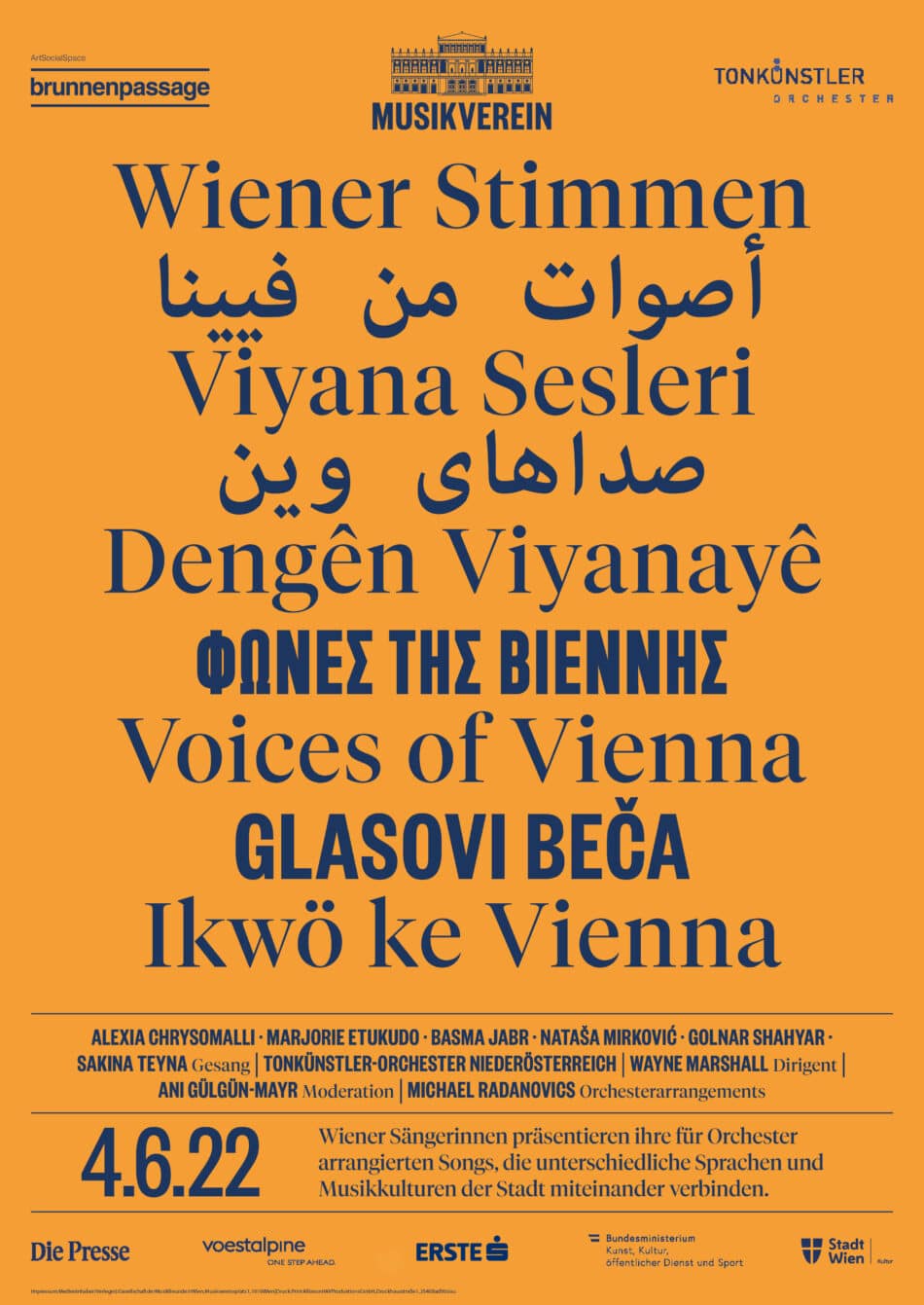
On the Musikverein website, there is a really uplifting and inspiring text about the goal of diversification. And yet the question is, what really stands behind it? Is it already a “win” to be working with them at all?
Zuzana Ernst: I must say, I think it’s already a huge step. There is an awareness: we need to change. And then of course there’s also an understanding that it’s a long process. And, as we mentioned, there is the project Wiener Stimmen, but it’s not only this one event, but a lot of other processes that are happening in the background. And, most importantly, there is a commitment, in Musikverein’s case, which is already a lot in comparison to other institutions – to commit to a two-year process, that is accompanied by a diversity expert in institutional contexts, where, in addition to the project format, they are also engaging in a kind of “reality check” of what is the actual structure of the institution: who is in the personnel, what are the procedures, etc.? So they are in the middle of this process right now. I think it’s something that’s not so easy to share in detail publicly at this stage, but there is already a step made.
And, of course, it’s a learning process altogether, because we also don’t know if this kind of “diversification process” (which is also a strange word by the way) is actually going to do anything. But nevertheless, there is a commitment at the moment, for which also money was taken into the hands, and an expert was paid for a period of two years, which is so much more than a lot of other institutions are doing.
Golnar Shahyar: Yes, for sure. I also wanted to add to that because I was in this event where Stephan Pauly [note: Artistic Director of Musikverein] introduced the next year’s program and I realized – it’s not easy at all from his standpoint, because he has to make sure that the funders are on board – and it’s really a huge community that actually supports that system. So if he does something too much, that’s also not going to work. So I realized the immensity of pressure from the outside, from people who expect Musikverein to be a certain way, and are even paying for it. So it’s not only about what he wants or not.
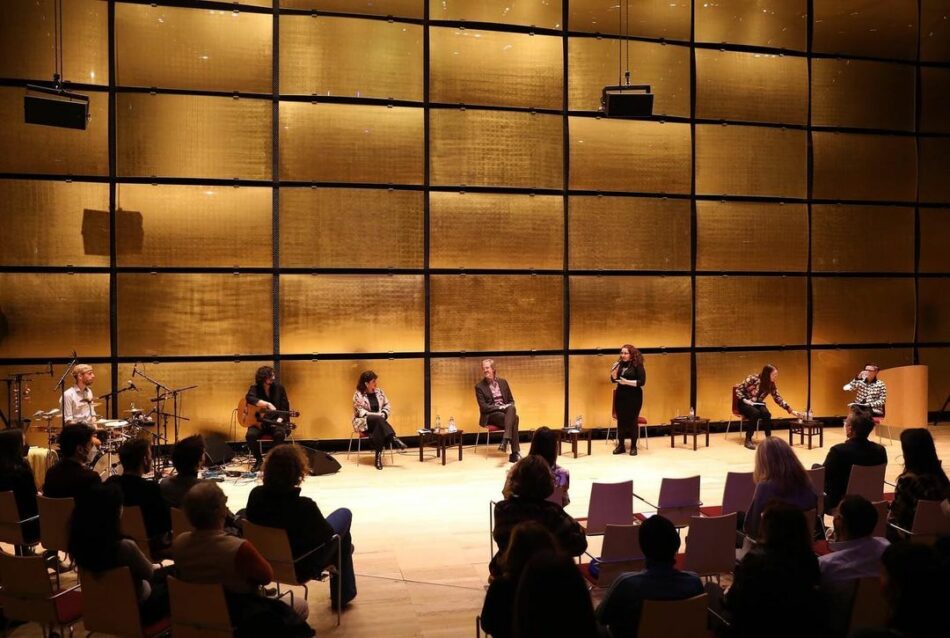
We all tend to simplify things – thinking there are sides of people fighting for diversity and sides against. But that’s not the reality. There are plenty of grey zones. Sometimes it only takes a bit of dialogue, visibility and transparency to get to a place where one can say: ‘I understand you’. And it seems that’s where D/Arts comes in – creating more and more space for people to hear each other.
Golnar Shahyar: Yes. And it’s important to realize that there’s also a huge diversity of perspectives on the notions of inclusion and democratization of culture. There are people who do think it’s absolutely bullshit, and there are people who appreciate it, but they don’t know how to deal with it. For example, regarding Musikverein’s agenda, people who you wouldn’t necessarily expect, with plenty of privilege and power, have come up to me and said, “I’m very much looking forward to this. We are tired of listening to Mozart for the millionth time.”
“One has to be ready for resistance – and create strategies for it”
Which means that these institutions, in some cases, really don’t even know their audience. They’re making assumptions. So, again, it comes down to communication.
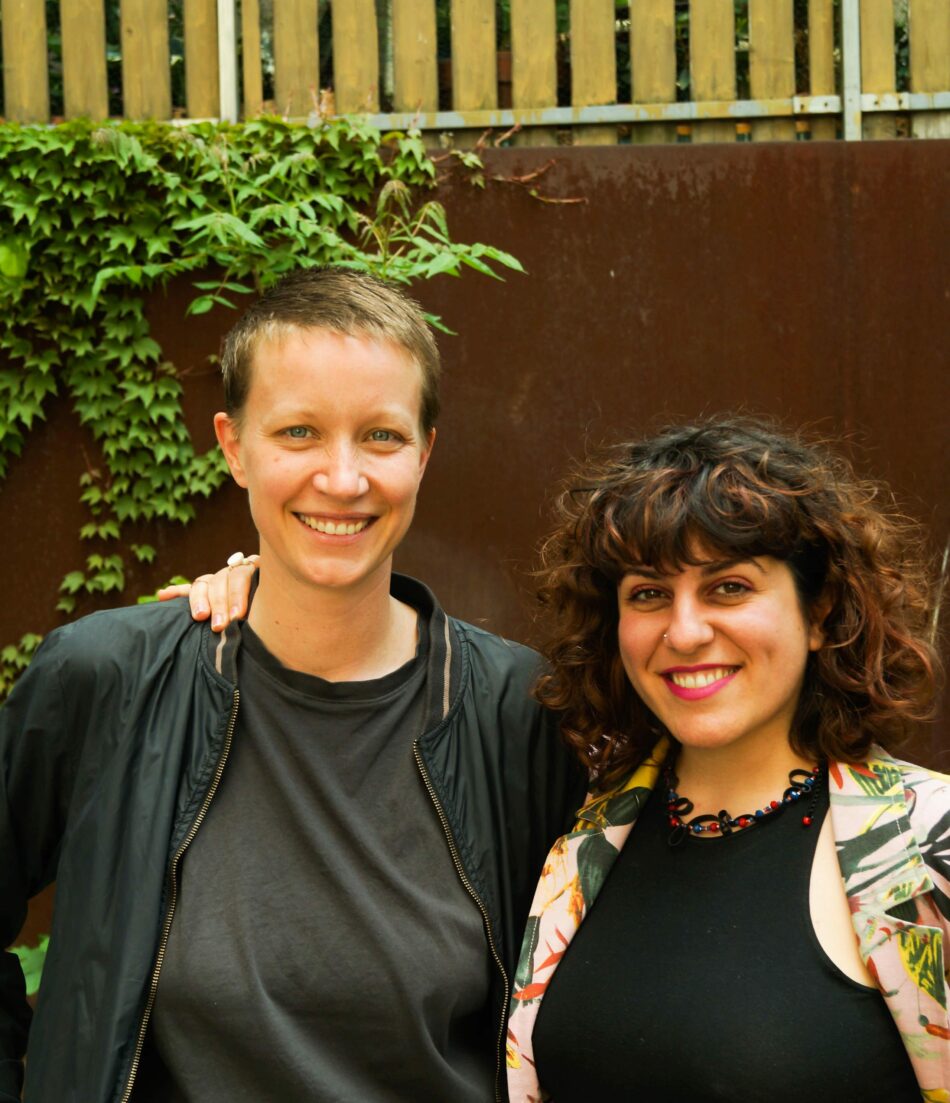
Golnar Shahyar: Of course there’s also resistance. That will always be. But one has to know that and be ready for it – and create strategies for it. Because the conversation does not end with that resistance. For a lot of people, they stop there. But it’s a lot about pushing on, going deeper and understanding the other side, as well.
Zuzana Ernst: It requires a lot of patience – and finding this balance of pushing, but not so hard, that the doors close again immediately.
Thank you for the inspiring and humbling conversation! To be continued!
Arianna Fleur Alfreds
PART II of the interview can be found: here.
For tickets to the Wiener Stimmen concert at Musikverein on June 4th, 2022, check out our raffle on the mica website, or go directly to the venue’s homepage!
links
mica Ticket Raffle for Wiener Stimmen at Musikverein
Wiener Stimmen Event at Musikverein
